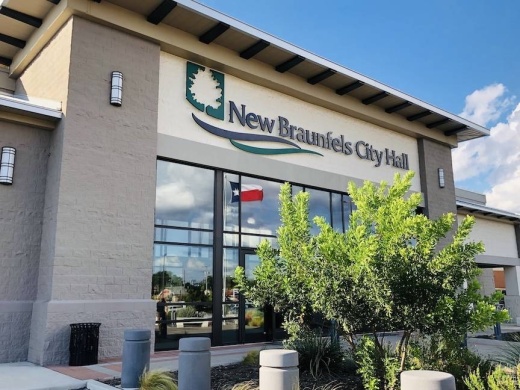An impact fee is an assessment of new development to generate revenue for funding or recouping the costs of transportation capital improvements or facility expansion improvements that are made necessary by new development. The fees were established in New Braunfels in 2007, and funding from the fees goes toward roadway, waste and wastewater improvements related to new developments.
The current collected fee was established in February 2020 and made effective Aug. 1, 2020. The adopted collected fees are 50% of the maximum assessable fees for residential land uses and 25% for nonresidential land uses.
The adopted collected fees in 2020 were based on a target of 65% of the maximum assessable fee for residential land uses and 50% of the maximum assessable fee for nonresidential land uses. The target collected fees are a balance of addressing the impact of development on the transportation system in a specific service area with maintaining economic competitiveness, according to the city of New Braunfels.
“Obviously, some of these projects that are needed by the development are not being done, and it’s just a matter of the citizens living with congestion and delays,” said Garry Ford, New Braunfels Transportation and Capitol Improvements director.
Council has the authority to establish the collected fees at up to 100% of the maximum assessable fees, which the majority of council members in attendance at the meeting voiced their support for.
“If I have to choose between pricing out somebody who hasn’t moved here and pricing out somebody who’s been here for 40 years, I’m going to choose the people who haven’t moved here yet,” Council Member Andres Campos said. “If we don’t charge this impact fee, this is going to end up as a burden to our constituents, and that doesn’t seem fair to me.”
The recommendation made by the council will be reviewed by the Roadway Impact Advisory Committee before being seen before council. Ford anticipates the new fees can be approved in November and implemented in the beginning of 2023.
“One key thing to note that we want to demonstrate is that we are actually putting this money to great use. We get a lot of projects done, and by doing this, you actually only improve the transportation system, which benefits everybody,” Ford said.
The next fee study is planned to take place in 2024, when projected land use, growth and development over a 10-year time frame in New Braunfels is analyzed.





